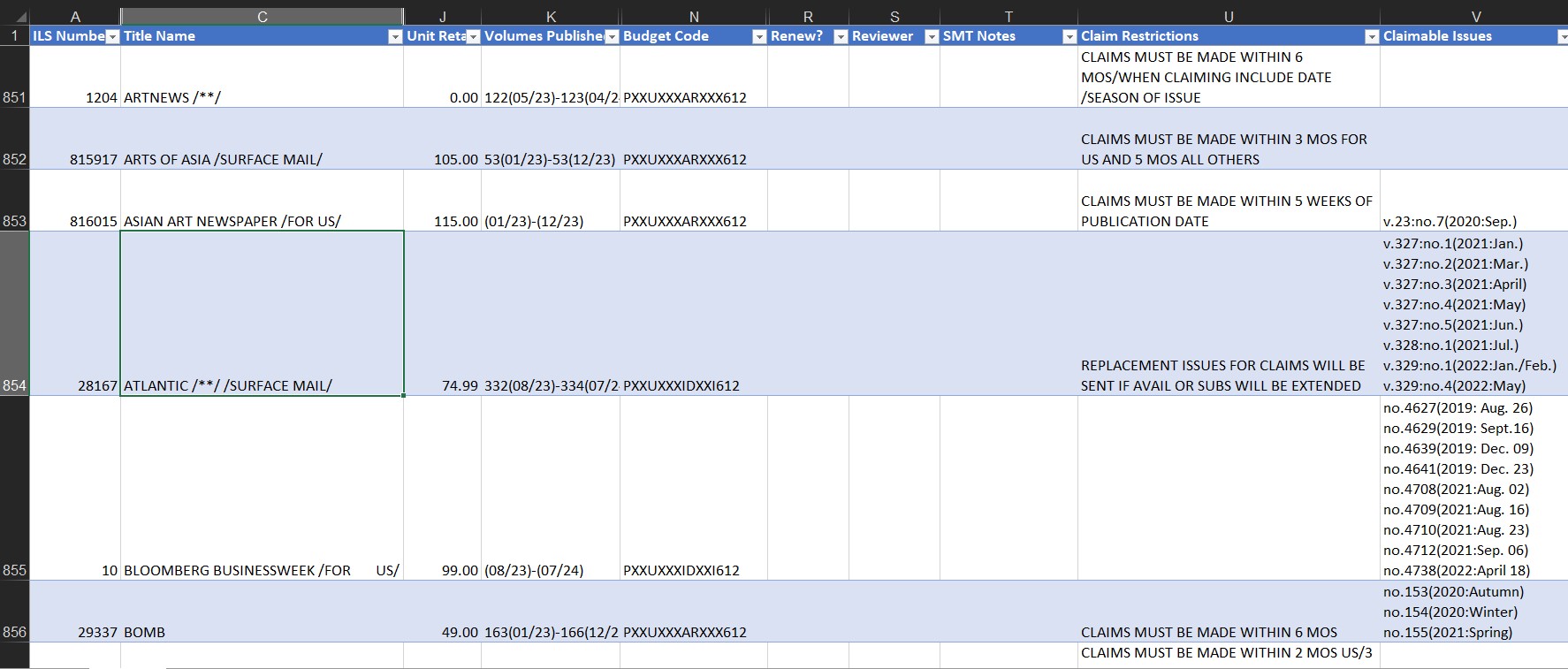 Hello! My name is Adam Hudnut-Beumler, and I am a Serials Management Associate in the Continuing Resource Acquisitions Department. When not at work, I love going to bar trivia, playing sports, binging podcasts and hiking. But how did I get to Duke?
Hello! My name is Adam Hudnut-Beumler, and I am a Serials Management Associate in the Continuing Resource Acquisitions Department. When not at work, I love going to bar trivia, playing sports, binging podcasts and hiking. But how did I get to Duke?
In 2017, I came to Durham right after college to start a PhD in American Religions at Duke’s Graduate Program in Religion. During that time, I got a summer job as a student assistant working in the stacks and at the desk at Lilly Library. Somewhere along the line, I realized I liked contributing to the library more than studying critical theory, so after three years I pivoted my career aspirations to the library. Gratefully, in February 2021 I started as a Serials Management Assistant with CRAD. I am also thankful for the support of the department as I also attend the UNC-Chapel Hill School of Information and Library Science. My coursework allows me to acquire data science skills of use to academic libraries and our patrons.
I began my current responsibilities around the start of May 2022. Placing orders, paying invoices, and handling vendor communication make up the core of my job. I also copy catalog and manage the receipt and labeling of Duke’s Government Documents collection. Working constantly between DUL’s order, subscription, item, and holdings records in our current ILS Aleph, the job also requires a diligent eye to ensure our periodicals and serials data and metadata are correct and up to date for our users. As our department looks to the transition to FOLIO next summer, I attend weekly meetings with my Serials Management Team members to advocate for greater serials and periodicals acquisitions functionality. 
Recently, I brought my library school learning into my job for CRAD’s annual subscription renewals review project. Starting with the spreadsheets of our open orders provided by our major vendors, I added a column that lists all past-due issues aligned with each order row. I used the principles of database querying I learned in a course this summer to develop a working knowledge of the Aleph Reporting Center. I created a report of all periodicals with elapsed expected arrival dates, and then read that data as a .csv into a Python script which could combine multiple issues’ data into single lines for each order number. After transforming the data, I read the .csv back into Excel and used the VLOOKUP function to join my claimable issues table to our renewals spreadsheets on the order number. With this data readily available, we can identify our problematic subscriptions at a glance and achieve a thorough claiming of the materials DUL promises to provide its patrons.
I feel blessed to work with such a talented team. Our department head, Virginia, and our team leaders, Bethany and Abby, promote open collaboration and communication. We always have each other’s backs in CRAD. The other great thing about working in Technical Services broadly and CRAD in particular is the breadth of materials and areas of the library our work touches. Digital and print, humanities and sciences, East and West Campus,all corners of Duke University Libraries and its offerings intersect with CRAD. Getting to know colleagues across DUL divisions is an added bonus of that variety. With that variety comes a lot of complexity, and the job forces you to have a good memory for DUL’s many codes and abbreviations. SMT work takes you across Aleph modules—Acquisitions, Cataloging, and even Circulation regularly—and requires learning of multiple vendor websites, Caiasoft for LSC records, and external programs like WinSCP and OCLC Connexion. It is work that turns you into a jack of all trades (and master of some). Using those skills to work with colleagues in other TS departments is always a treat—Smith Solidarity! No one does it quite like TS.

